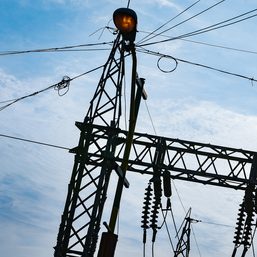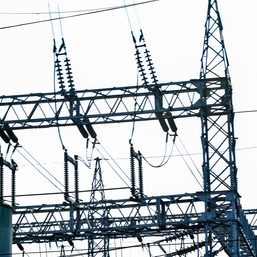SUMMARY
This is AI generated summarization, which may have errors. For context, always refer to the full article.

MANILA, Philippines – In a narrow 6-5 vote, the Supreme Court upheld a December 2013 rate hike by the Manila Electric Company (Meralco) that sought to charge from its consumers P22.64 billion in recovery costs.
It is a decision made after eight years since the rate hike was supposed to be implemented in the November 2013 bill of Meralco consumers. The decision was promulgated August 3, 2021, but uploaded on the Supreme Court website only on Friday, July 1.
According to the estimate of dissenting justice Amy Lazaro Javier, the additional charges could have gone up to an additional P800 on the bill, representing a 61% or P4.15 per kilowatt hour increase. An indefinite temporary restraining order (TRO) was issued by the Court on April 22, 2014.
The effect of the ruling – whether Meralco can now collect these additional charges – is still unclear.
“We have yet to receive the official copy of the decision. Once we receive it though, we will need to study the reported SC decision to understand and see what the actual impact will be,” said a Meralco representative.
Former Bayan Muna Representative Carlos Zarate, a petitioner in the case, said the decision that upheld the “highest power rate hike in history could not have come at a worse time.”
“A financial burden like this, once Meralco imposes this new power rate hike – on top of the already high electricity rates – may already break the Filipino consumers’ back,” said Zarate.
The case is rooted in the maintenance shutdown of the SPEX-Malampaya in 2013, which Meralco said compelled it to buy more expensive electricity from Wholesale Electricity Spot Market (WESM). Meralco wanted to recover that cost from its consumers, or in the amount of P22.64 billion.
The Energy Regulatory Commission or ERC issued an order on December 9, 2013, approving Meralco’s proposal to charge the consumers based on a staggered scheme. But in that same order, the ERC denied Meralco’s request to also charge carrying costs, or the cost that Meralco would incur because the recovery is staggered through a period of time.
In the decision penned by Associate Justice Jhosep Lopez, the Court upheld the December 9, 2013 ERC order, saying the commission “acted within the confines of its regulatory powers and cannot therefore be said to have acted with grave abuse of discretion.”
The dissenters, led by Javier and Senior Associate Justice Marvic Leonen, wanted to declare the ERC December 2013 order null and void for not doing due investigation into whether Meralco’s computation – or if its basis for additional charges – was even proper.
Leonen said: “It should have initiated investigations even prior to the Joint Congressional Committee. The mention of such high increase by Meralco should have triggered the Energy Regulatory Commission to make relevant inquiries to protect the public.”
Both Javier and Leonen said that public interest demanded that ERC conduct public hearings. “Leonen argues that the staggered scheme shows a complexity beyond otherwise routine adjustment and that this was the reason an opportunity to hear from others was vital. The Court disagrees,” said the majority opinion.
The majority opinion cited the AGRA rules or the guidelines for the automatic adjustment of generation rate and system loss rates.
The majority said Section 1, Article VIII of the AGRA rules provides an exception from public hearings and says “ERC has the power and discretion to allow an exemption from the AGRA Mechanism where good cause appears.”
But Javier said: “The ERC process failed to consider whether, on the facts not disputed by anyone, it would be unfair and therefore contrary to both the principles expressed or implied in RA 9136 [EPIRA law] and the exception clause in the AGRA Guidelines to accede to Meralco’s proposal.” EPIRA is short for the Electric Power Industry Reform Act, which, among others, mandates the ERC to promote competition and ensure consumer choice.
Concurring with Justice Jhosep Lopez were Associate Justices Ramon Paul Hernando, Rosmari Carandang, Henri Jean Paul Inting, Mario Lopez, and Samuel Gaerlan.
Dissenting with Leonen and Javier were Chief Justice Alexander Gesmundo and Associate Justices Rodil Zalameda and Ricardo Rosario.
Retired senior associate justice Estela Perlas Bernabe and Associate Justice Benjamin Caguioa abstained.
Of these votes, Bernabe and Carandang have retired. Additional four new justices – Japar Dimaampo, Midas Marquez, Antonio Kho and Maria Filomena Singh – will potentially vote on the motion for reconsideration of a 6-5 vote. – Rappler.com
Add a comment
How does this make you feel?





There are no comments yet. Add your comment to start the conversation.